müslüman
My friend Abdu (walking from Beijing to Bad Nenndorf) decided to take me out to see some of the city’s most famous sights today.
One of those sights, and a very important place for Muslims in China, is the tomb of Gess Anzari Kaziyallahu:
Remember I told you about the tomb of Wuaisi (overlooked & unexpected) near Jiayuguan before? I said that there were 3 early Muslims in China, right? Well it appears that they in fact personally knew the Prophet Mohammed and came to China together as missionaries in the early 7th century. One of them was Wuaisi, and another one was this Gess Anzari Kaziyallahu who was buried here.
We visited the interior of the mausoleum, but I wasn’t allowed to enter all the way:
What’s interesting is the fact that the original mausoleum used to be in Xingxingxia (where’s my spray paint?), but got demolished during the war and then relocated to the city of Hami, where it’s been resting since 1945:
…
After this, we went to another mausoleum, only this one was much bigger:
The tombs of the Hami Uyghur Royal family:
Yes, royal. I had never been aware of the fact that there used to be an original Uyghur kingdom from 1697 up until the year 1930 in this region. The princes apparently worked closely together with the Qing-dynasty in Beijing, and helped them secure political stability in this region. At least that’s what the tourist guide told us.
The architecture of this place was intriguingly…
diverse…
…and fascinating…
…in its beauty.
We both wandered around enjoying the fun of photography:
And we even found a hole in the ground where they apparently used to bake the royal nang:
Oh, I want me some of that nang too!
You wanna know something? I think Germans are the undisputed kings of bread – but that nang-thing is really pretty good as well!
…
We also visited what is now left of the city’s ancient wall:
It was kind of sad to see an imposingly large structure like this slowly falling apart though.
…
Even though it is now Ramadan and he wasn’t allowed to eat anything, Abdu still insisted on taking me out to try some Uyghur delicacies:
And I gotta say: this was also very good! There was yogurt… walnut cookies… home-made ice-cream… nut cake…
Good stuff, and I was feeling pretty bad for munching through all that stuff while my friend could only stay hungry until the evening!
…
Later we went to an Uyghur supermarket, an interesting place as well.
Everything in there was halal, and some of the products seemed like they were actually imported from Turkey:
I’m not sure about this particular chocolate candy bar here, but the writing on it looked pretty Turkish to me.
Also, I noticed the Uyghur are very proud of their hereditary ties to the Turks. Their languages apparently also have some similarities, and sometimes I can even make out some words when they speak. Like, they would call me something like: “germania”, or they would use words like “computer”, and “kilometer”.
I wanted to try some of the Turkish vocabulary I thought I had brilliantly mastered before. So I repeatedly exclaimed “döner!”, “merhaba!”, and “arkadaş!”, somehow hoping to be able to bridge a gap from here to the Bosporus.
But they couldn’t understand me.

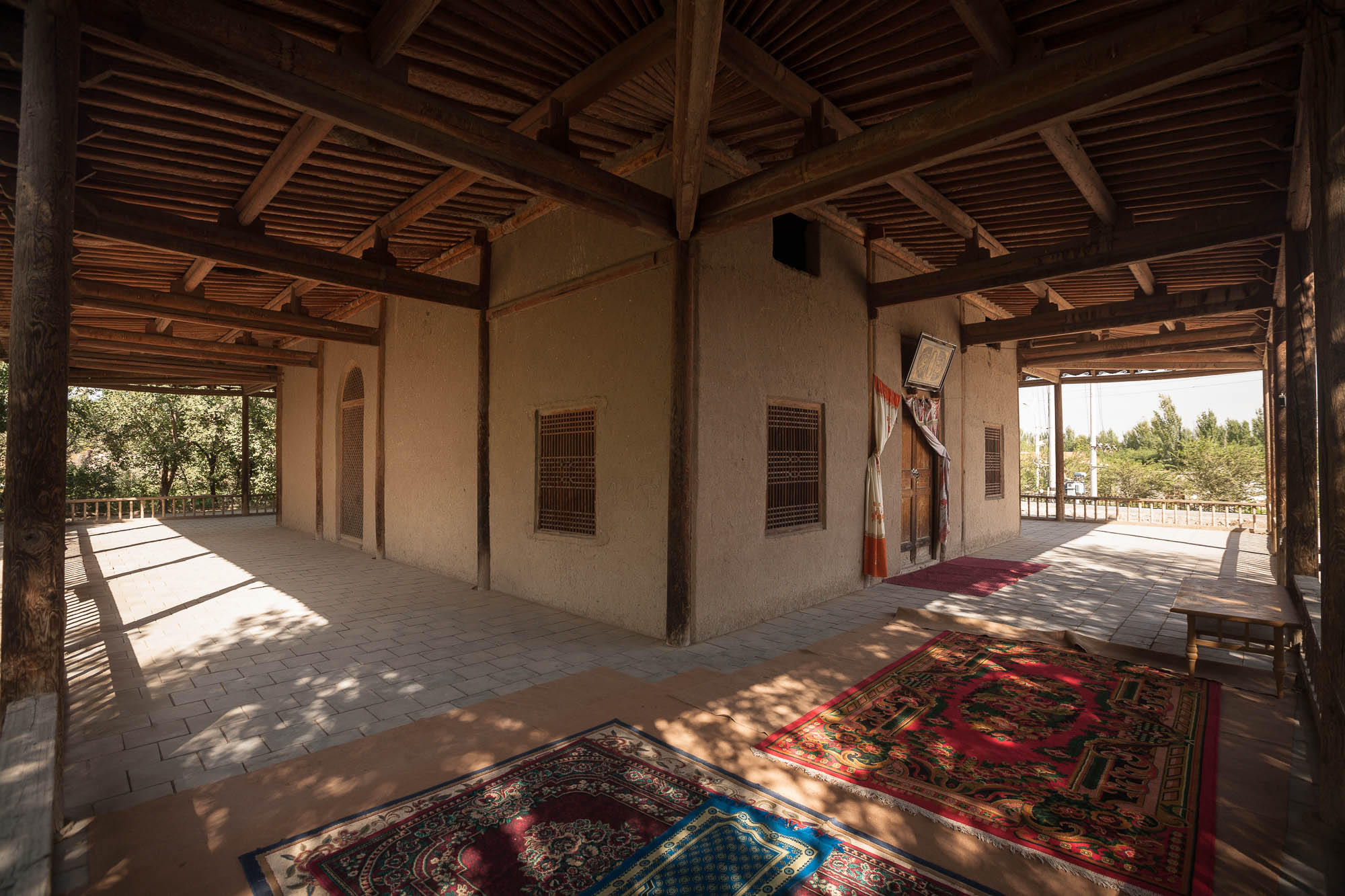

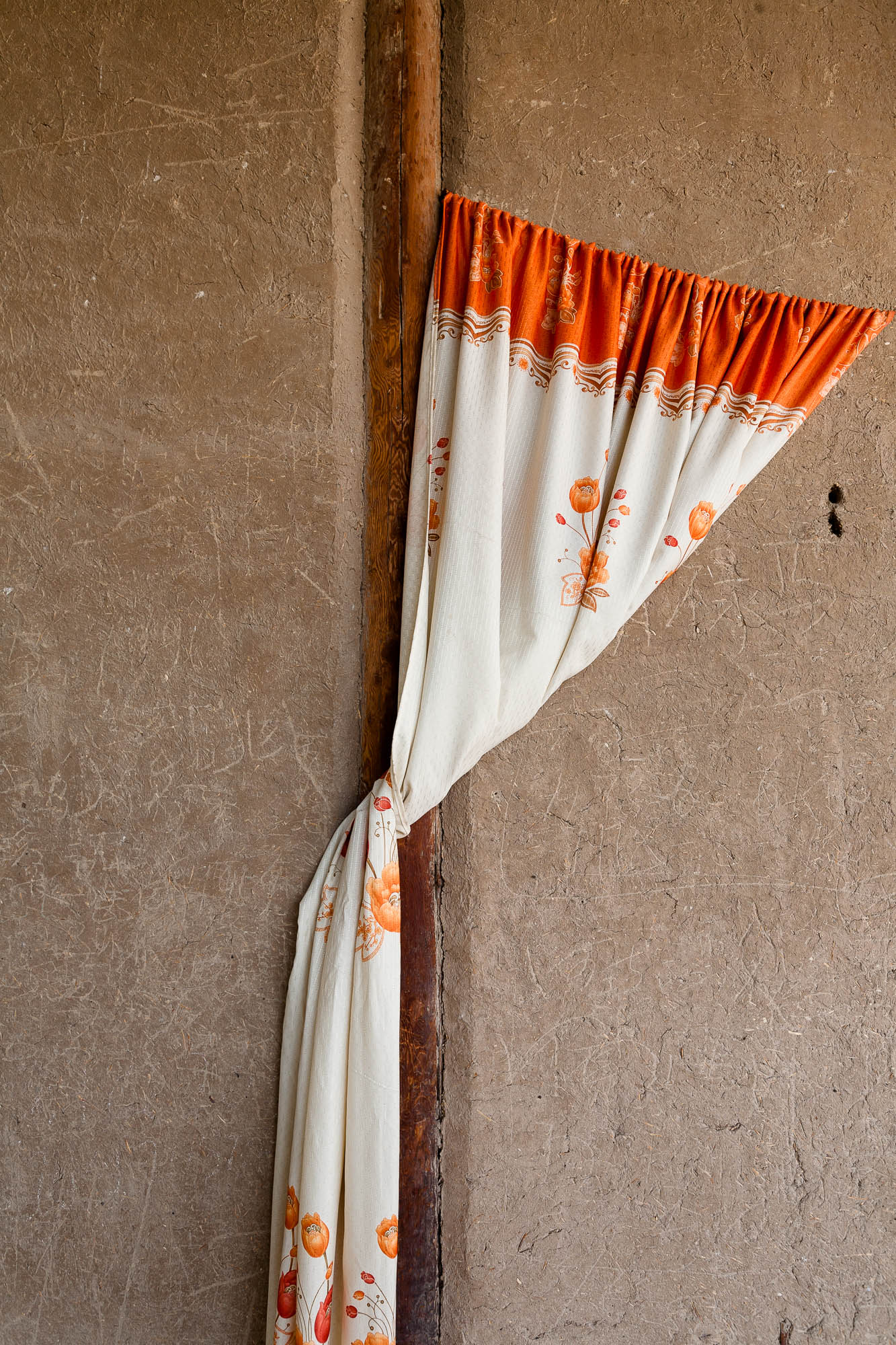
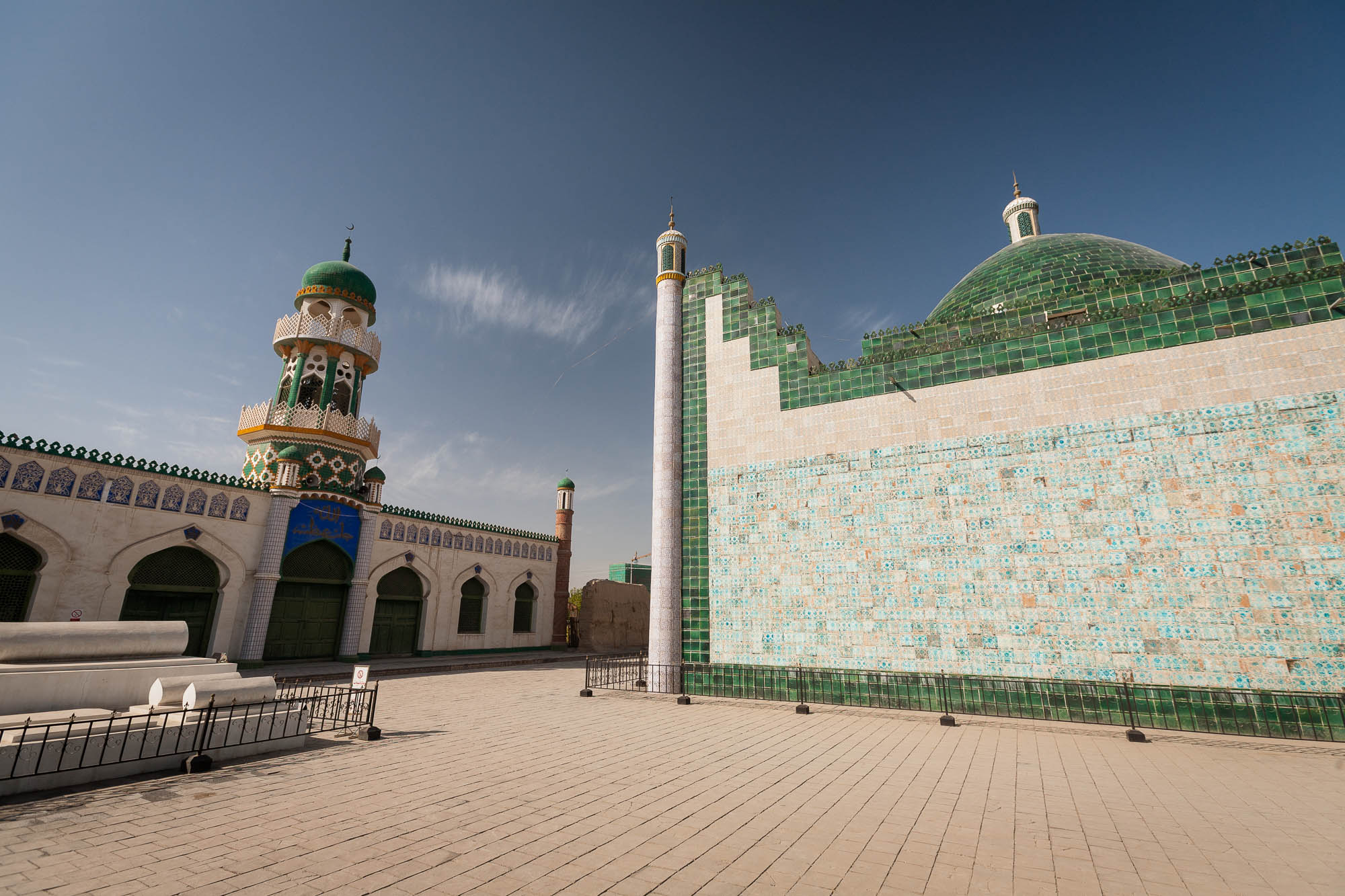
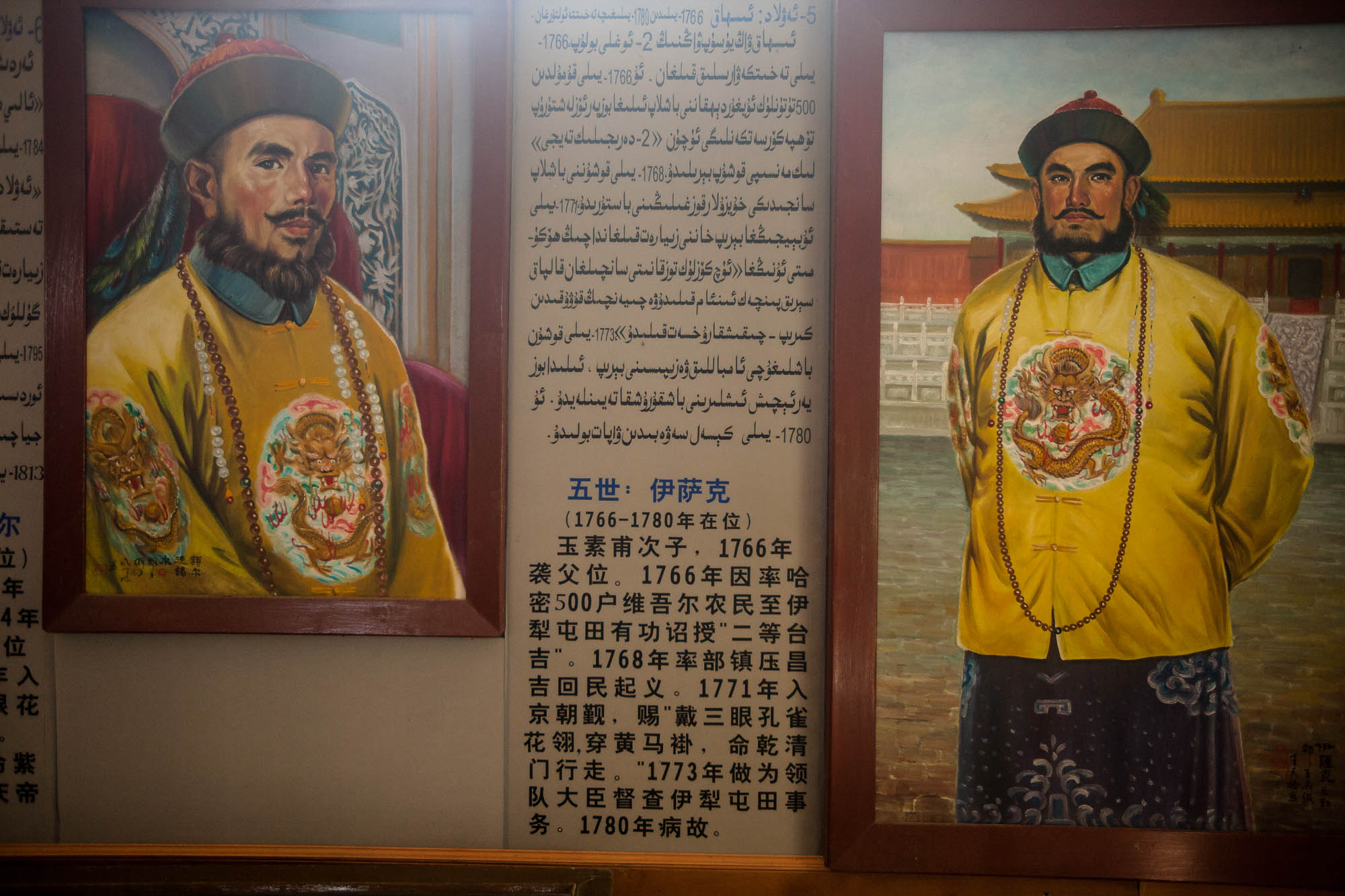
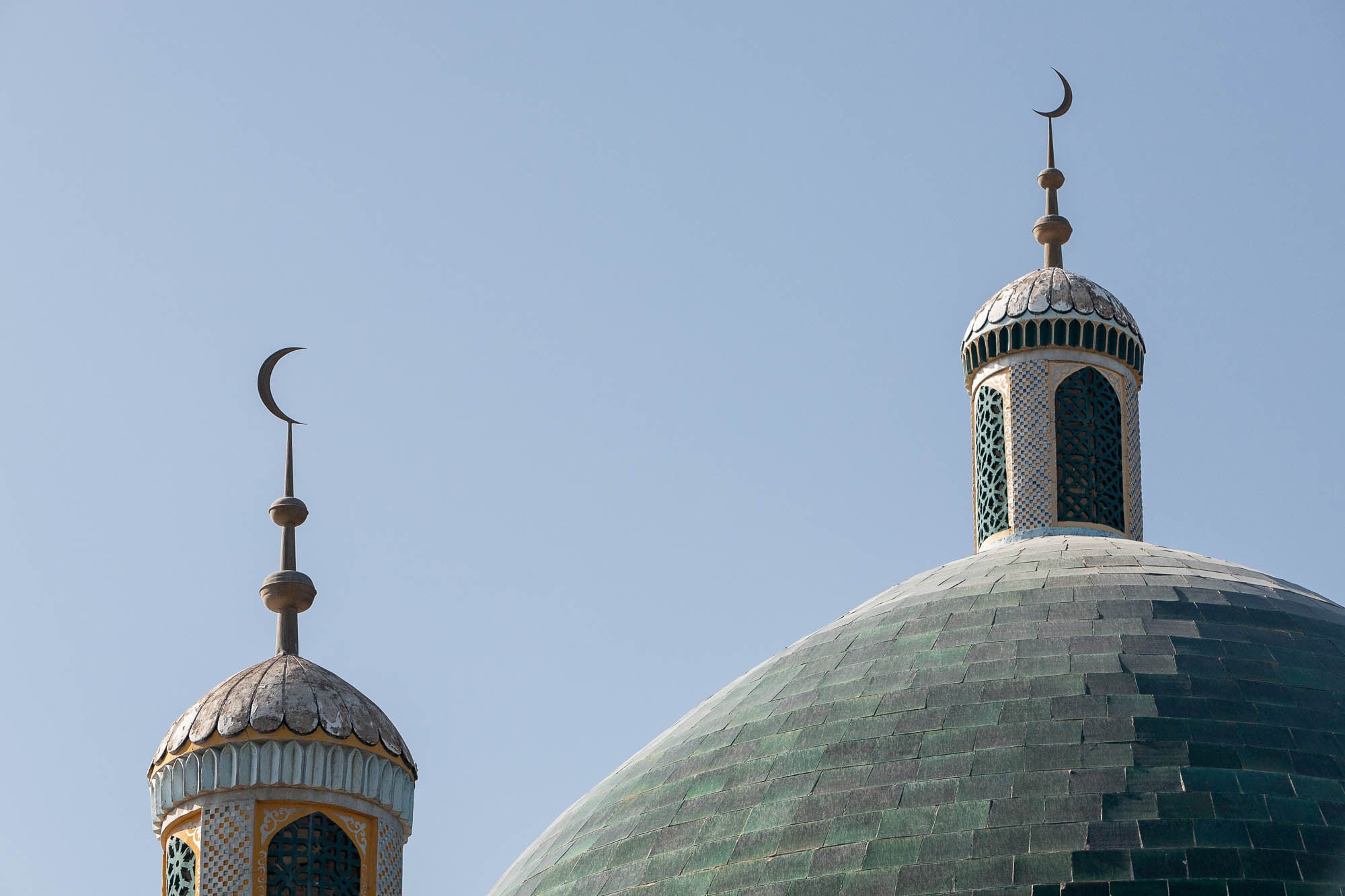
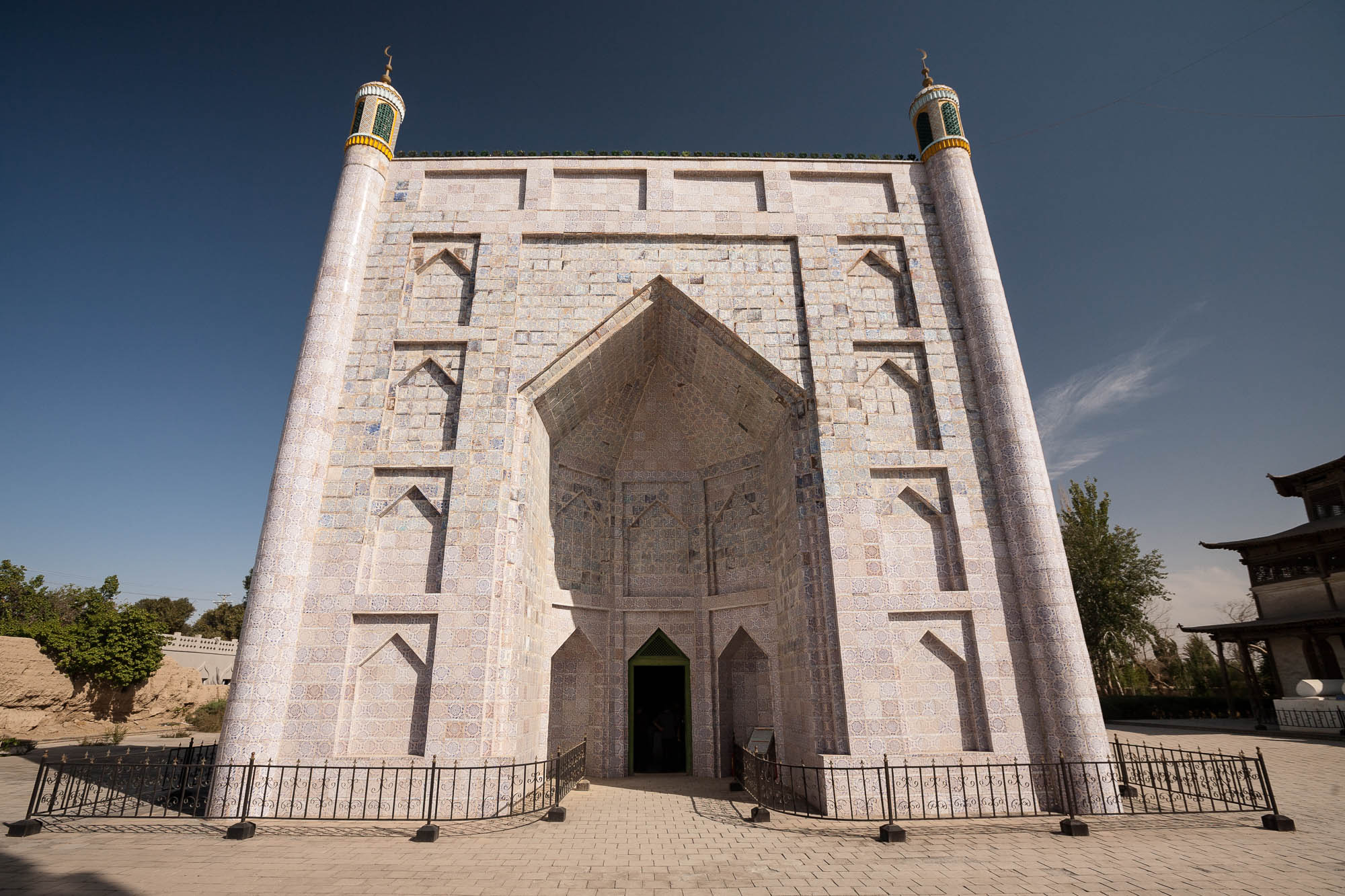
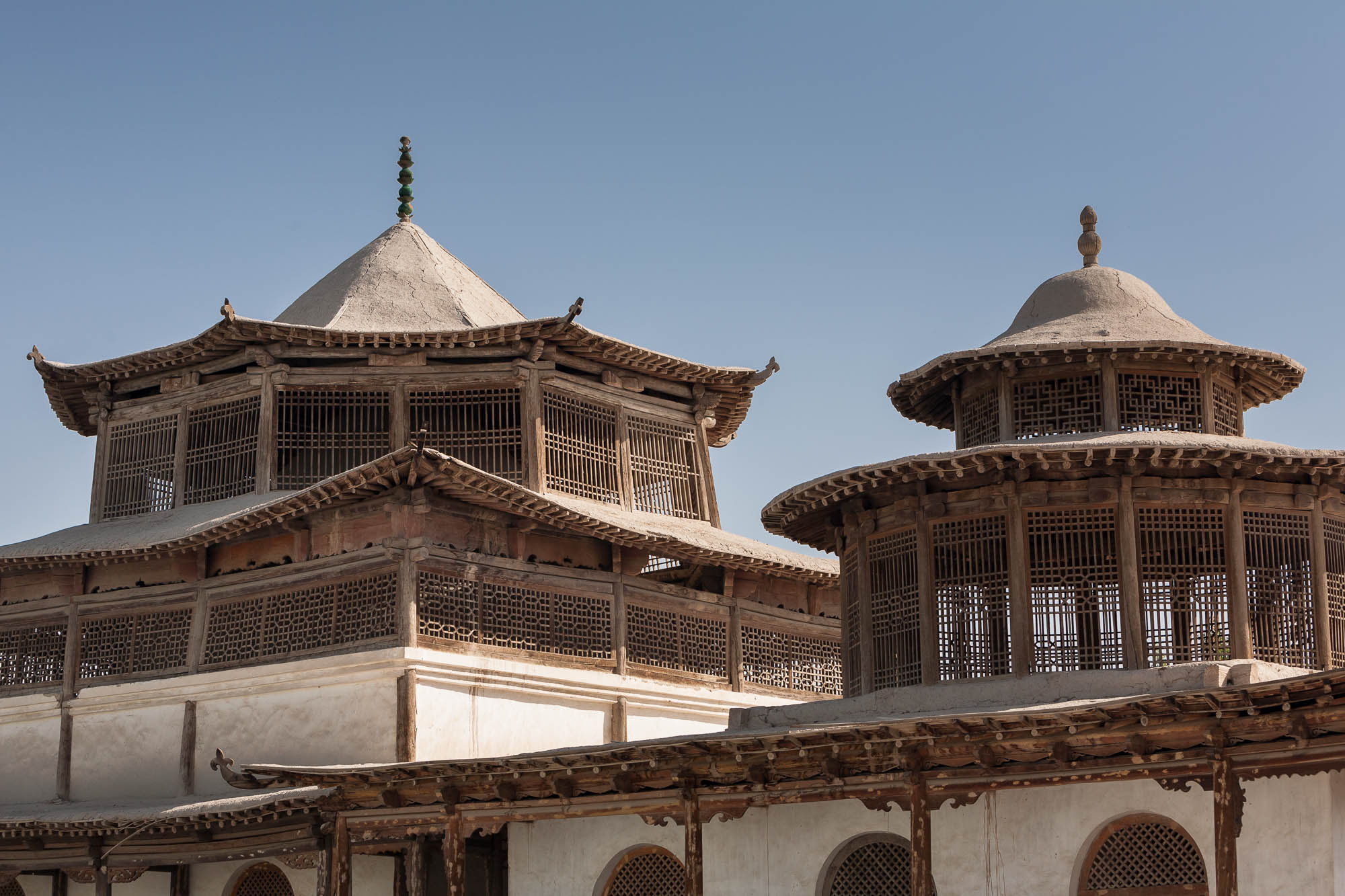
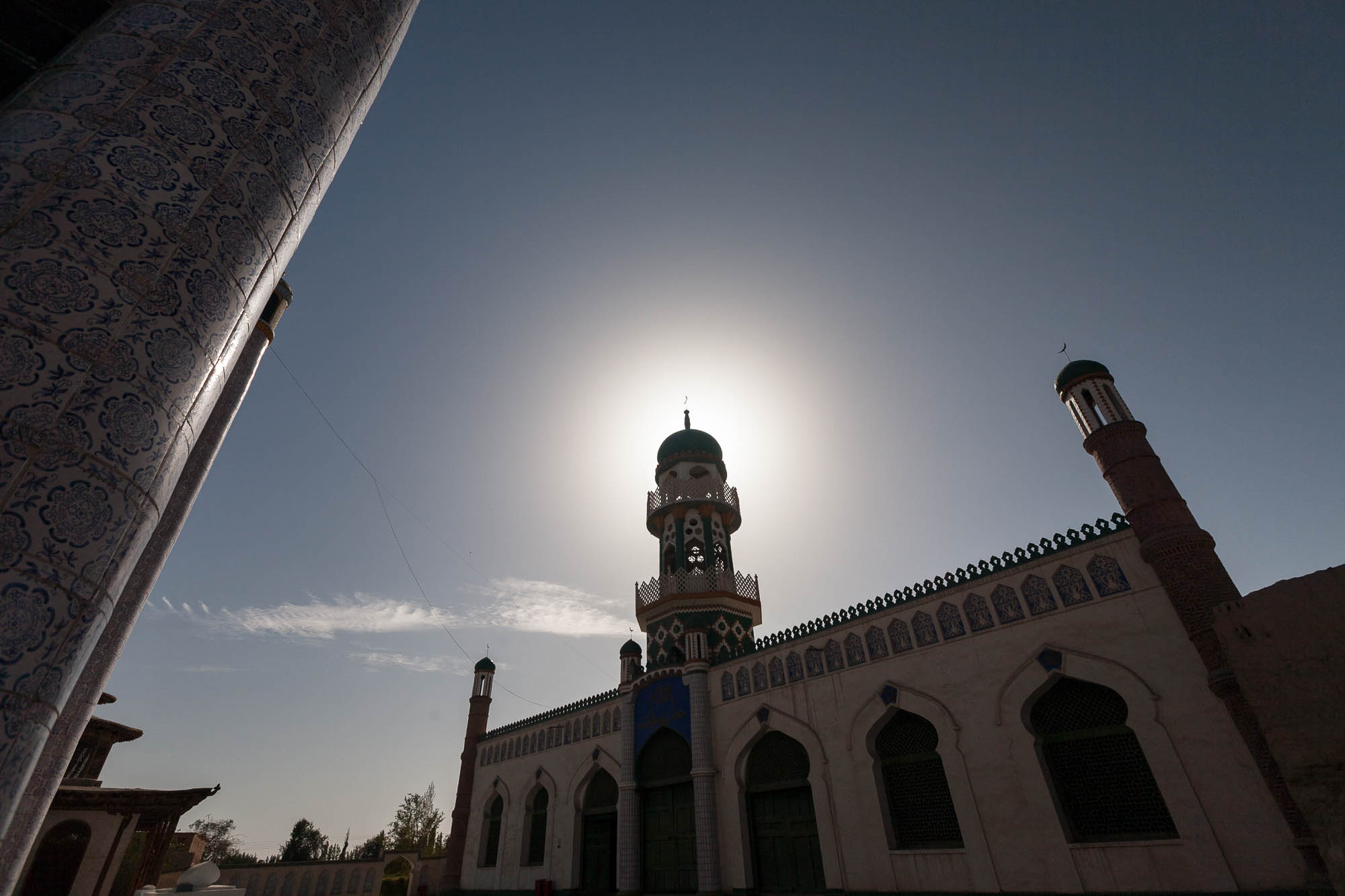
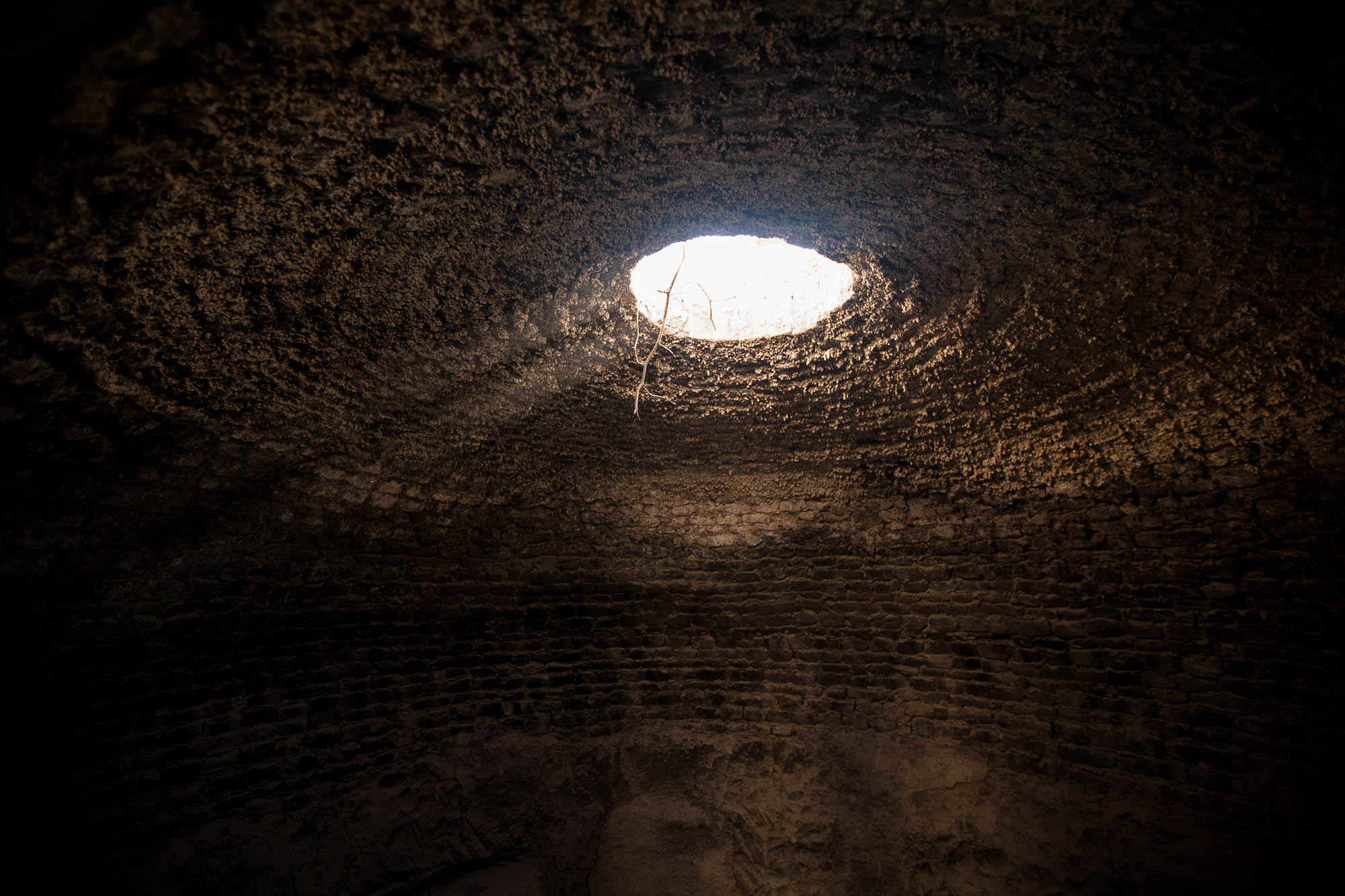
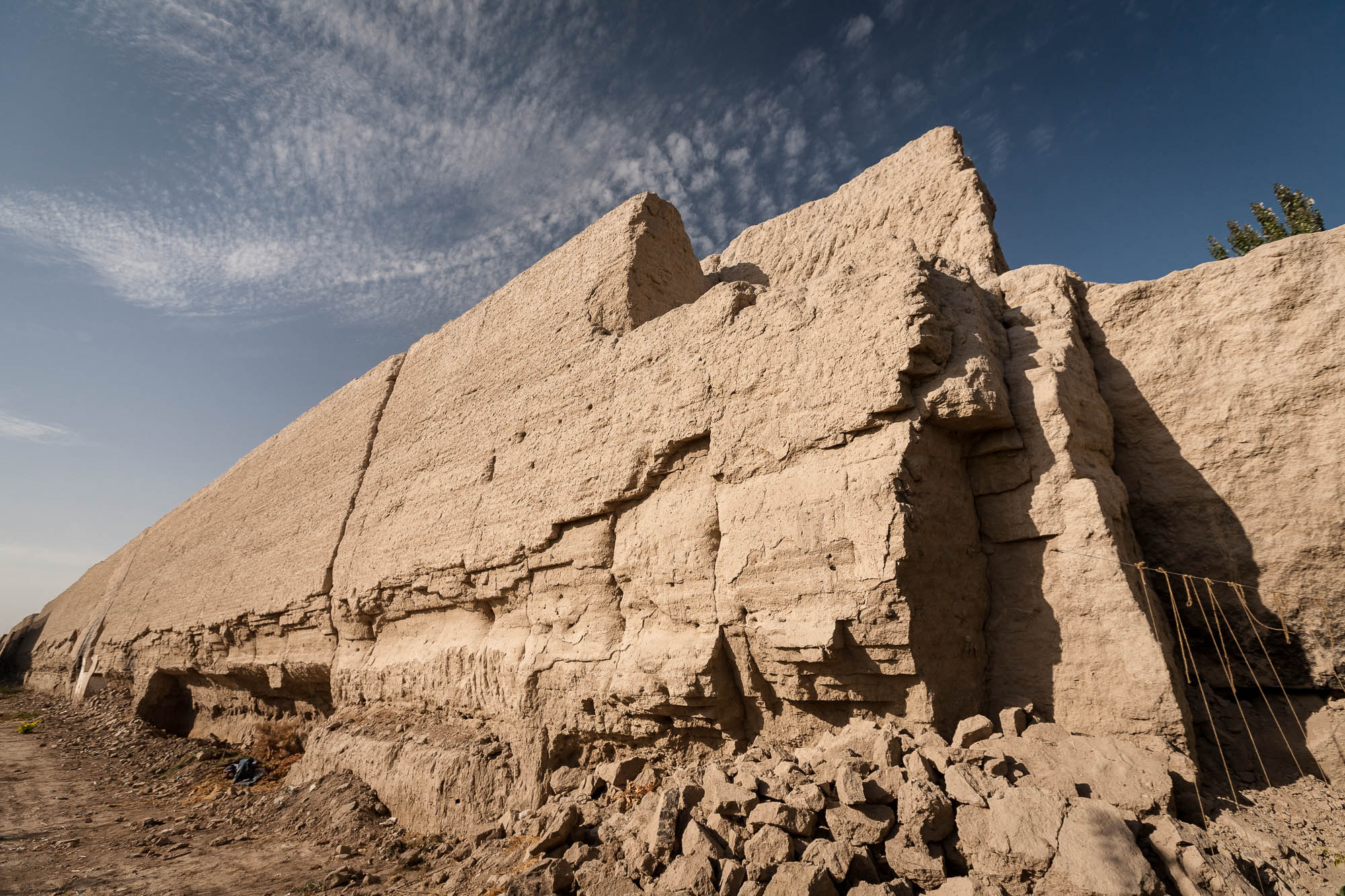
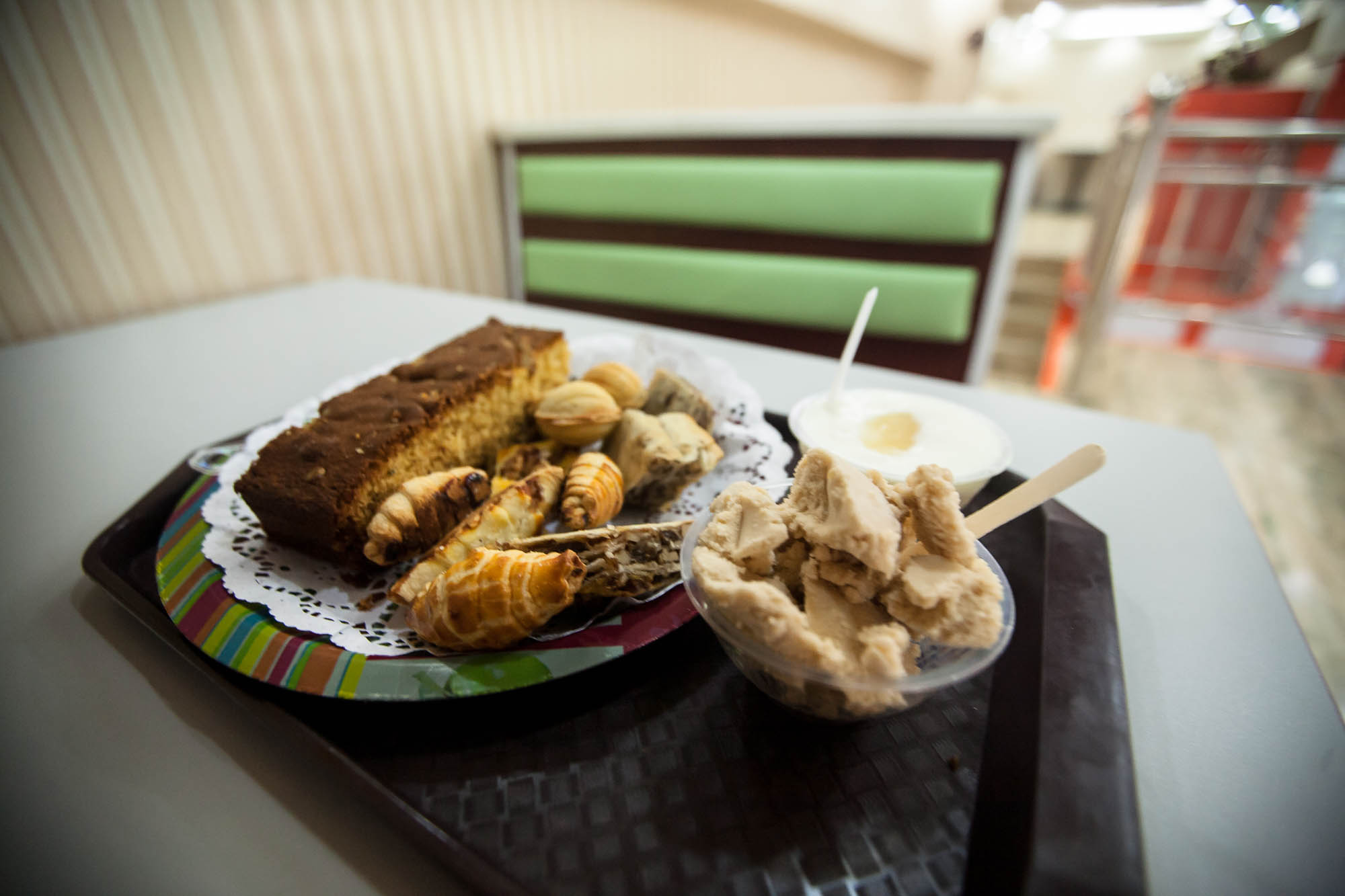
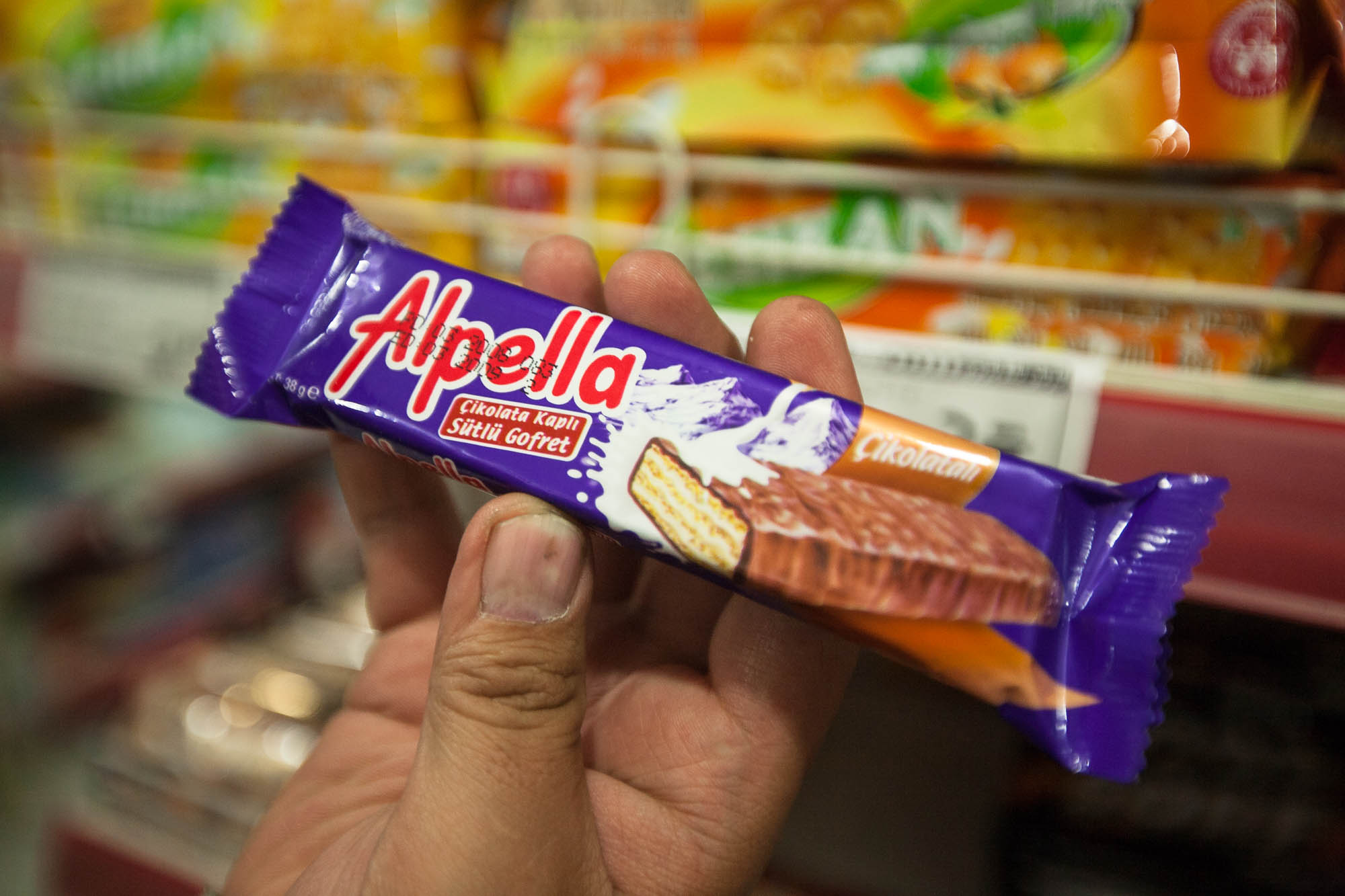
max
hey christoph!
probiers mal mit "yahximusiz" [ausgesprochen etwa jachsimmusiß], das heißt soviel wie "guten tag" oder "how do you do?", "rehmet" [etwa rächmätt], heißt "danke", oder "hox" [das hat irgendwie jeder uighure anders ausgesprochen, etwa "hosch" oder so], das heißt "tschüss".
alle uighuren die sonja und ich getroffen haben, haben sich immer sehr gefreut über die paar wörter…
ich hab mich mal mit einem türken hier in deutschland unterhalten, der hat mir erzählt dass diese wörter im modernen türkisch nicht mehr verwendet werden, er kannte sie aber und konnte die bedeutung verstehen, sind wohl veraltete ausdrücke in der türkei…
die zahlen sind aber meines wissens exakt die gleichen:
1 bir
2 ikki
3 üq
4 tört
5 besh
usw.
in kirgisistan würdest du damit übrigens auch weiter kommen (zumindest hatte uns das der kirgise am karakulsee erklärt), ich nehme an in kasachstan und den anderen seidenstraßeländern auch (die sprachen sind ja alle verwandt).
für mehr uighurisch kann ich uighurlanguage.com empfehlen…
beneide dich sehr um deine zeit da in xinjiang. und das mit dem brot sehe ich genauso, die uighuren sind offiziell die "viceroys of bread"
machs gut!
Austin
You know, some food for thought: the Uygur empire (including what is now Mongolia) of the 8th Century was the only nation ever to adopt Manachaeism as the state religion. Think about that and suddenly dualities start popping up everywhere in Xinjiang.
Austin
Oh, and here's some Uygur for you that I use the most (since max already covered hello, thanks and the numbers, i'll cover food!):
"Kebab" is, well, kabab, normally lamb stick
"Bourek Kebab" is my favorite, lamb kidney kebab
"Ack Nan" is the normal nang you get
"Gyrdai Nan" is the bagel-like nang
"Shamsa" is their "kao bao zi" good cheap salty eats.
"yenna" means 'and' even though my Uygur friends assure me it is unnecessary, for some reason I find conjunctions comforting.
"bar mu" means "do you have?"
So you can say "ber nan bar mu?" which means "do you have a nang?"
Come to think of it, i'll ask my uygur friends how to say guest room, because "room" + "do you have" might come in handy for you.
(Oh, and I have no clue how to transliterate this stuff, so I'm just spelling it how it sounds to my American ear)
oneday
good night, tonight i drink too much
Florian (Flo Li Anh,
Irgendwie hatte ich mich ja schon gewundert, dass der Christoph die letzten Etappen äußerst "große Schritte" gemacht hat. Und nun zum einen die verdiente Auszeit, zum anderen wartet da natürlich auf der kommenden Etappe der 4000km Tanz, den wir uns sicherlich nicht entgehen lassen wollen 🙂
max
thanks for posting that culinary vocabulary austin! when i was in xinjiang i always used to just point at what i wanted an say the number. i never found out the names, well except for nan which is quite a universal word.
and i definitely loved those shamsas with all that fatty lamb meat inside!
oneday
when you meet a muslim,
say" a sa lai ,ma lai kum"
they will answer "ma lai kum ,sa lam"
trust me , i am a genius at language .
i think the meaning is "how are you"in arabic
try it and tell me is it work ,ok .
and remember you must not ask "are you a terrorist"
http://www.youtube.com/watch?v=1uwOL4rB-go
Steven
Have you tried to use the new "Google Chrome" browser?
It is fffffast !!!
Austin
I second Google Chrome. I've been using it on this and other photo-centric websites, (including my own) and it's great because the non-linear processing means that the pictures pop up pretty much at the same time as the text if you've got a good internet connection.
asiye
hey, I have just met you and your web page, looked at other experiences and great advebtures which you lived, everything looks like fantastic and taught you many things:) nice.. and me? I am from Turkey and I ma sure, you had many friends and met the new ones on your way, and some of them are from Turkey, so I am another new:)) some cues for you about turkish
thank you: teşekkür ederim (don't forget to say:) )
enjoy your meal: afiyet olsun
ok: tamam
I don't want : istemiyorum
hope so: inşallah:)))))
and the numbers
bir
iki
üç
dört
beş
altı
yedi
sekiz
dokuz
on
one day I want to go China and maybe if you don't mind, could you give me important details about this huge country? :))
teşekkürler